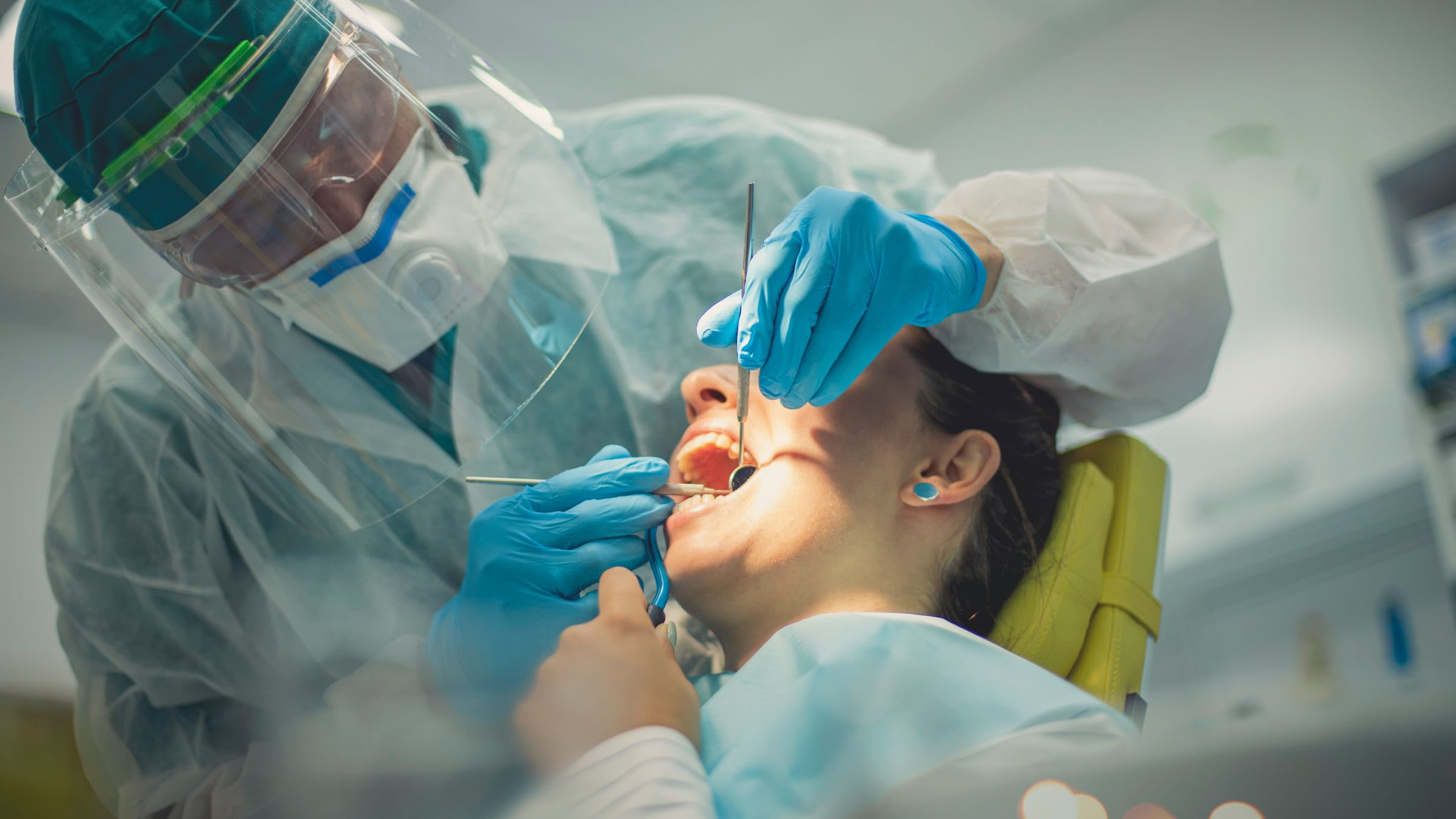
Signs of stress are showing up in a place that might surprise you: inside the mouths of more and more people.
Since the pandemic began, dentists have seen a spike in damage from teeth clenching and grinding, often done unconsciously, in reaction to stress. They’re treating more fractured teeth and broken fillings while also hearing more complaints about jaw pain, according to survey data from the American Dental Association Health Policy Institute.
On a normal day, you chew for about an hour in total. If you’re clenching or grinding, especially at night, you’ve dramatically increased the amount of time your teeth are touching and working. It’s possible to go from one hour a day to five or six hours of activity if you’re clenching or grinding your teeth at night or during the day. And the fallout can be sore and tired muscles as well as stress on your teeth.
But there’s a lot you can do to try to stop this unconscious habit, and even if you can’t stop, you can shield your teeth and jaw from the pressure.
Is clenching teeth the same as grinding teeth?
When you clench your teeth, you bite down hard. When you grind your teeth, not only do you bite down hard, but you also shift your jaw either front to back or side to side. Both grinding and clenching wear down tooth enamel, the hard outer protective layer on your teeth that’s formed as the tooth is developing. Once a tooth erupts into the mouth, no more enamel is ever created.
So, wear and decay break down the enamel over time. Both clenching and grinding accelerate the rate of wear on our teeth. Cracks can form in the enamel, and that can lead to teeth breaking. When you grind your teeth, it’s like sanding the teeth against each other. Neither clenching nor grinding your teeth is good, but the damage can be limited through proper exams, diagnosis and treatment.
Are you seeing more signs of clenching or grinding teeth in your patients?
We can’t say that because of the pandemic, people are clenching and grinding their teeth more, but we can say that the general level of anxiety has grown and there’s a rise in stress-related dental conditions. That’s what the data shows.
In my dental practice, I’m definitely seeing an increase in clenching/grinding of teeth and the muscle symptoms that are related to those habits. The symptoms are also more severe than what I’ve seen in the past.
In the last year, I’ve made more bite splints, sometimes called night guards, than in the past five years prior to that. It makes sense that people would manifest their stress from the pandemic in different ways. All things considered, clenching and grinding your teeth is not the most self-destructive habit you could have. And the effects are fixable.
Why do people start clenching or grinding their teeth?
Everyone has stress. We use different coping mechanisms to relieve that stress. Your body may respond by releasing hormones that prepare the body for fight or flight. When that happens, the body releases energy to allow us to defend ourselves or run away. If you’re dealing with a direct threat — for example, a burglar in the house — you can use that energy to fight or run. If, however, the threat is more perceived — such as being worried about not being able to pay the rent — your body still produces energy to fight or flee but may not be releasing that energy by running or fighting in that situation. The muscle contraction of the jaw clenching or grinding is one outlet to get rid of that energy.
How does teeth clenching and grinding damage your teeth?
The enamel on your teeth is a crystal. Two crystals rubbing against each other puts pressure on the enamel and can cause it to wear away. It’s the same thing that happens when you chew ice, which is also a crystal. Once the enamel is gone, the inner layer of your tooth is prone to decay and your tooth can become sensitive to hot or cold. Teeth can crack and so can fillings.
Your teeth can become sore or sensitive to temperature — hot or cold. Headaches are common, and it can be difficult to open your mouth or chew because your muscles are so overworked.
How do you stop grinding your teeth?
It’s important not to accept jaw pain and teeth chipping as normal or something you can’t do anything about.
There’s a lot you can do. Before going to bed, limit screen time and add in some relaxation techniques. Drinking water throughout the day also helps because it takes water to make saliva, which allows the teeth to slide over each other easily. Without that saliva, the rate of wear on your teeth increases.
Exercise, yoga and even just walking more to burn off excess energy can be very helpful. Some people may need to wear a bite splint, a plastic dental device that you put in your mouth at night or during the day to protect your teeth and jaws from clenching or grinding.
How much protection can a bite splint offer your teeth?
A well-designed bite splint — as long as it’s in place — will shield your teeth from the force of your bite. Your dentist can evaluate your bite splint at every visit and adjust it as needed because over time, it can wear out and need to be replaced. You should bring any bite splint, mouth guard or other mouth appliances with you to every visit. Your dentist can look at them and see marks that can give them an idea of what you’re doing.

Healthy teeth start here
Ohio State offers complete general and specialty dental care, including emergency care for patients of all ages.
Schedule an appointment




